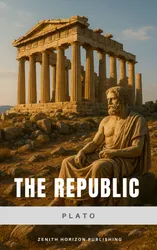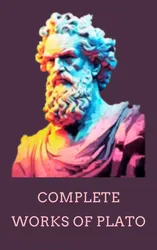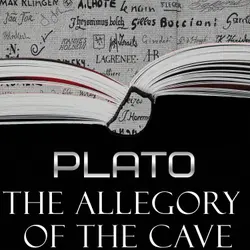The Harvard Classics Anthology, spanning an impressive 51 volumes, presents a monumental assembly of works that traverse vast historical, philosophical, and literary landscapes. This collection encapsulates the monumental thoughts and expressions from antiquity to the dawn of modernity, featuring an array of genres that include philosophy, drama, poetry, and scientific inquiry. The anthology stands as a testament to the intellectual diversity of human thought and creativity. It is particularly noted for its inclusion of key philosophical treatises, influential literary masterpieces, and pioneering scientific discourses, all of which have shaped the contours of global civilization. The authors and contributors to this anthology are among the titans of their respective fields, ranging from the foundational insights of Plato and Aristotle to the dramatic geniuses of Shakespeare and Molière, alongside scientific luminaries such as Charles Darwin and Louis Pasteur. This diverse collection provides a panoramic view of the human experience, informed by various epochs and movements—enlightenment thought, romanticism, and the early stirrings of modern scientific questioning. Together, their works not only underscore the thematic richness of the anthology but also reflect the evolving dialogue of mankind's quest for knowledge and expression over centuries. The Harvard Classics Anthology is more than just an academic resource; it is a gateway to the world's intellectual heritage, curated to foster an appreciation for the depth and breadth of human inquiry and creativity. Readers, scholars, and lifelong learners are invited to explore this extensive collection, which offers unique insights into the interconnectedness of diverse intellectual traditions. Engaging with these volumes promises not only a deeper understanding of seminal texts but also an invaluable perspective on the dialogues that have propelled human thought forward throughout history.
Harvard Classics Anthology - Complete 51 Volumes : The Greatest Works of World Literature - Dr. Eliot's Five Foot Shelf
Authors:
- Plato
- Marcus Aurelius
- William Shakespeare
- Benjamin Franklin
- Homer
- Friedrich von Schiller
- William Makepeace Thackeray
- John Ruskin
- Robert Louis Stevenson
- Edgar Alan Poe
- Henry David Thoreau
- Voltaire
- Jean Jacques Rousseau
- Immanuel Kant
- Thomas Hobbes
- John Woolman
- William Penn
- Epictetus
- Francis Bacon
- John Milton
- Thomas Browne
- Ralph Waldo Emerson
- Robert Burns
- Saint Augustine
- Thomas à Kempis
- Aeschylus
- Sophocles
- Euripides
- Aristophanes
- Marcus Tullius Cicero
- Pliny the Younger
- Adam Smith
- Charles Darwin
- Plutarch
- Virgil
- Miguel de Cervantes
- John Bunyan
- Izaak Walton
- Aesop
- Wilhelm Grimm
- Jacob Grimm
- Hans Christian Andersen
- John Dryden
- Richard Brinsley Sheridan
- David Garrick
- Oliver Goldsmith
- Percy Bysshe Shelley
- Robert Browning
- George Gordon Byron
- Johann Wolfgang von Goethe
- Christopher Marlowe
- Dante Alighieri
- Alessandro Manzoni
- Richard Henry Dana
- Edmund Burke
- John Stuart Mill
- Thomas Carlyle
- Pedro Calderón de la Barca
- Pierre Corneille
- Jean Racine
- Molière
- Gotthold Ephraim Lessing
- Philip Sidney
- Ben Jonson
- Abraham Cowley
- Joseph Addison
- Richard Steele
- Jonathan Swift
- Daniel Defoe
- Samuel Johnson
- David Hume
- Sydney Smith
- Samuel Taylor Coleridge
- William Hazlitt
- Leigh Hunt
- Charles Lamb
- Thomas De Quincey
- Thomas Babington Macaulay
- James Russell Lowell
- Michael Faraday
- Hermann Ludwig Ferdinand von Helmholtz
- Simon Newcomb
- Archibald Geikie
- Benvenuto Cellini
- Michel de Montaigne
- Charles Augustin Sainte-Beuve
- Ernest Renan
- Giuseppe Mazzini
- Herodotus
- Tacitus
- Francis Drake
- Philip Nichols
- Francis Pretty
- Walter Bigges
- Edward Haies
- Walter Raleigh
- René Descartes
- Jean Froissart
- Thomas Malory
- William Henry Harrison
- Niccolo Machiavelli
- William Roper
- Thomas More
- Martin Luther
- John Locke
- George Berkeley
- Hippocrates
- Ambroise Paré
- William Harvey
- Oliver Wendell Holmes
- Joseph Lister
- Louis Pasteur
- Thomas Dekker
- Francis Beaumont
- John Fletcher
- John Webster
- Philip Massinger
- Blaise Pascal
- William A. Neilson
Format:
Duration:
- 20852 pages
Language:
English

10 Masterpieces You Have to Read Before You Die, Vol.5 : The Odyssey, The Republic, Meditations, The Divine Comedy, Faust and others
Homer, Plato, Aristotle, Marcus Aurelius, Niccolo Machiavelli, Dante Alighieri, Johann Wolfgang Von Goethe, Leo Tolstoy
audiobookbook
15+ Political Science. Classics Collection : The Art of War, Tao Te Ching, The Republic, Meditations, The Prince, Utopia, Utilitarianism, Anarchism and others
Sun Tzu, Lao Tzu, Plato, Marcus Aurelius, Niccolo Machiavelli, Thomas More, Tommaso Campanella, Francis Bacon, Thomas Paine, John Stuart Mill, Karl Marx, Friedrich Engels, Vladimir Lenin, Rosa Luxemburg, Peter Kropotkin, Emma Goldman, Leon Trotsky
audiobook
The Republic : Complete Classic of Western Philosophy
Plato, Zenith Horizon Publishing
book
Platón : Obras Completas
Plato, Zenith Golden Quill
book
The Republic : A Foundational Text of Western Philosophy and Political Thought
Plato, Zenith Golden Quill
book
The Complete Works of Plato : Dialogues, Republic, and Philosophical Classics from the Father of Western Thought
Plato, Zenith Evergreen Literary Co
book
The Republic : A Foundational Dialogue on Justice, Society, and the Ideal State
Plato, Zenith Evergreen Literary Co
book
Complete Works of Plato : Philosophical Masterpieces That Shaped Civilization
Plato, Zenith Crescent Moon Press
book
The Allegory of the Cave
Plato
audiobook
The Republic : Wisdom and Justice
Plato, Zenith Crescent Moon Press
book
Plato: The Complete Works (31 Books) : The Definitive Collection of Philosophy's Greatest Dialogues
Plato, Classics for all
book
Plato: The Complete Works (31 Books) : The Definitive Collection of Philosophical Classics
Plato, Moon Classics
book
- 230 books
Marcus Aurelius
Marcus Aurelius ruled the Roman Empire from 161 to 180 AD. Born to an upper-class Roman family in 121, Aurelius was adopted by his uncle, the emperor Antoninus Pius, in 138. Aurelius studied Greek and Latin literature, philosophy, and law, and was especially influenced by the Stoic thinker Epictetus. After Pius’s death, Aurelius succeeded the throne alongside his adoptive brother, Lucius Verus. His reign was marked by plague, numerous military conflicts, and the deaths of friends and family—including Lucius Verus in 169. Despite these struggles, the Empire flourished under Marcus’s rule as the last emperor of the Pax Romana, an era from 27 to 180 of relative peace and prosperity for the Roman Empire. Aurelius wrote his Meditations as spiritual exercises never intended for publication, and died at fifty-eight while on campaign against the Germanic tribes.
Read more - 2148 books
William Shakespeare
William Shakespeare is widely regarded as the greatest playwright the world has seen. He produced an amount of work; 37 plays, 154 sonnets, and 5 poems. He died on 23rd April 1616, aged 52, and was buried in the Holy Trinity Church, Stratford.
Read more - 217 books
Benjamin Franklin
Benjamin Franklin was a founding father of the United States of America. He was a printer, publisher, author, inventor, scientist, and diplomat. Franklin is known for signing and drafting the Declaration of Independence, representing America during the American Revolution, and making significant contributions to science.
Read more - 1436 books
Robert Louis Stevenson
Robert Lewis Balfour Stevenson was born on 13 November 1850, changing his second name to ‘Louis’ at the age of eighteen. He has always been loved and admired by countless readers and critics for ‘the excitement, the fierce joy, the delight in strangeness, the pleasure in deep and dark adventures’ found in his classic stories and, without doubt, he created some of the most horribly unforgettable characters in literature and, above all, Mr. Edward Hyde.
Read more - 62 books
Thomas Hobbes
Thomas Hobbes (1588-1679) was one of the founding fathers of modern philosophy. An Englishman, Hobbes was heavily influenced by his country's civil war and wrote his preeminent work, Leviathan, about the relationship between the individual and the government during that period. Hobbes was a scholar, phauthoilosopher, and the author of several works on political and religious philosophy.
Read more - 210 books
John Milton
John Milton is a famous English poet and intellectual known for his epic, Paradise Lost.
Read more - 204 books
Ralph Waldo Emerson
Ralph Waldo Emerson was the leading proponent of the Transcendentalist movement of the mid-nineteenth century. He was ordained as a Unitarian minister at Harvard Divinity School but served for only three years before developing his own spiritual philosophy based on individualism and intuition. His essay Nature is arguably his best-known work and was both groundbreaking and highly controversial when it was first published. Emerson also wrote poetry and lectured widely across the US.
Read more - 190 books
Charles Darwin
Charles Darwin’s (1809-1882) love of natural history led him to the Beagle. Twenty years after his voyage, his landmark work On the Origin of Species sparked immediate controversy and has continued to do so for 150 years. David Quammen is an acclaimed natural history writer and the author of The Song of the Dodo and The Reluctant Mr. Darwin, in addition to nearly a dozen other books.
Read more - 219 books
Miguel de Cervantes
Miguel de Cervantes (September 29, 1547 – April 22, 1616) was a Spanish novelist, poet, and playwright. His novel, Don Quixote, was considered the first modern European novel and is a classic of Western literature.
Read more - 180 books
Wilhelm Grimm
With his brother Jacob, Wilhelm Grimm collected and published Germanic and European folk and fairy tales during the early to mid 19th century. Some of the world’s most classic and beloved stories have been published by them, including “Rumplestiltskin,” “Snow White,” “Sleeping Beauty,” “Rapunzel,” “Cinderella,” “Hansel and Gretel,” and many more.
Read more - 229 books
Jacob Grimm
With his brother Wilhelm, Jacob Grimm collected and published Germanic and European folk and fairy tales during the early to mid 19th century. Some of the world’s most classic and beloved stories have been published by them, including “Rumplestiltskin,” “Snow White,” “Sleeping Beauty,” “Rapunzel,” “Cinderella,” “Hansel and Gretel,” and many more.
Read more - 1573 books
Hans Christian Andersen
One of the most prolific and beloved writers of all time, Danish poet and author Hans Christian Andersen is best known for his fairy tales. Born in Odense, Denmark, in 1805, Andersen published his first story at 17. In all, he wrote more than 150 stories before his death in 1875.
Read more - 95 books
Percy Bysshe Shelley
Percy Bysshe Shelley (1792–1822) was one of the major English Romantic poets and is regarded by critics as one of the finest lyric poets in the English language.
Read more - 24 books
George Gordon Byron
George Gordon Byron (1788–1824), commonly known as Lord Byron, was an English poet and a leading figure in the Romantic movement.
Read more - 314 books
Dante Alighieri
Dante Alighieri, born in Florence in 1265, became one of the leading lyric poets in Italy as a young man. He was exiled for political reasons, and in the last fifteen years of his life composed The Divine Comedy, of which the Inferno is the most-read part today.
Read more - 360 books
Jonathan Swift
Jonathan Swift was born of English descent in Dublin, Ireland in 1667. He went to school at Trinity College in Ireland, before moving to England at the age of 22. After a short stint in the Anglican Church, he began his career as a writer, satirizing religious, political, and educational institutions. He wrote in defense of the Irish people, especially in his A Modest Proposal, which made him a champion of his people. His most famous work is Gulliver’s Travels which was published anonymously in 1726.
Read more - 657 books
Daniel Defoe
Daniel Defoe was born at the beginning of a period of history known as the English Restoration, so-named because it was when King Charles II restored the monarchy to England following the English Civil War and the brief dictatorship of Oliver Cromwell. Defoe’s contemporaries included Isaac Newton and Samuel Pepys.
Read more - 156 books
David Hume
David Hume is a widely recognized Scottish Enlightenment philosopher, historian, and essayist. His most known works are A Treatise of Human Nature, concerning the Principles of Morals, and Enquiries concerning Human Understanding.
Read more - 161 books
Samuel Taylor Coleridge
Samuel Taylor Coleridge was an English poet, literary critic and philosopher who, with his friend William Wordsworth, was a founder of the Romantic Movement in England and a member of the Lake Poets.
Read more - 43 books
Thomas Malory
Thomas Malory was an English writer and the author of Le Morte d'Arthur.
Read more - 17 books
Thomas Dekker
Thomas Dekker is a Dutch former professional cyclist whose talent on the bike quickly took him to the top of the sport. He raced for The Netherlands in the 2004 Summer Olympic Games in Athens, won two Dutch National Time Trial Championships, and captured victories in the 2006 Tirreno-Adriatico and the 2007 Tour of Romandie. He rode for the Dutch Rabobank superteam and then Silence-Lotto before a retroactively tested sample returned positive for EPO. In 2009, Dekker was suspended for two years for the drug violation, and it was later confirmed during Operaction Puerto that Dekker was among the clients of Spanish doctor Eufemiano Fuentes. After his suspension, Dekker joined the American Garmin Development Team and rode for Garmin-Barracuda from 2012-2014. Dekker claims to have ridden clean for Jonathan Vaughters and he became a popular rider in the American peloton. He retired after an attempt on the World Hour Record in 2015.
Read more
